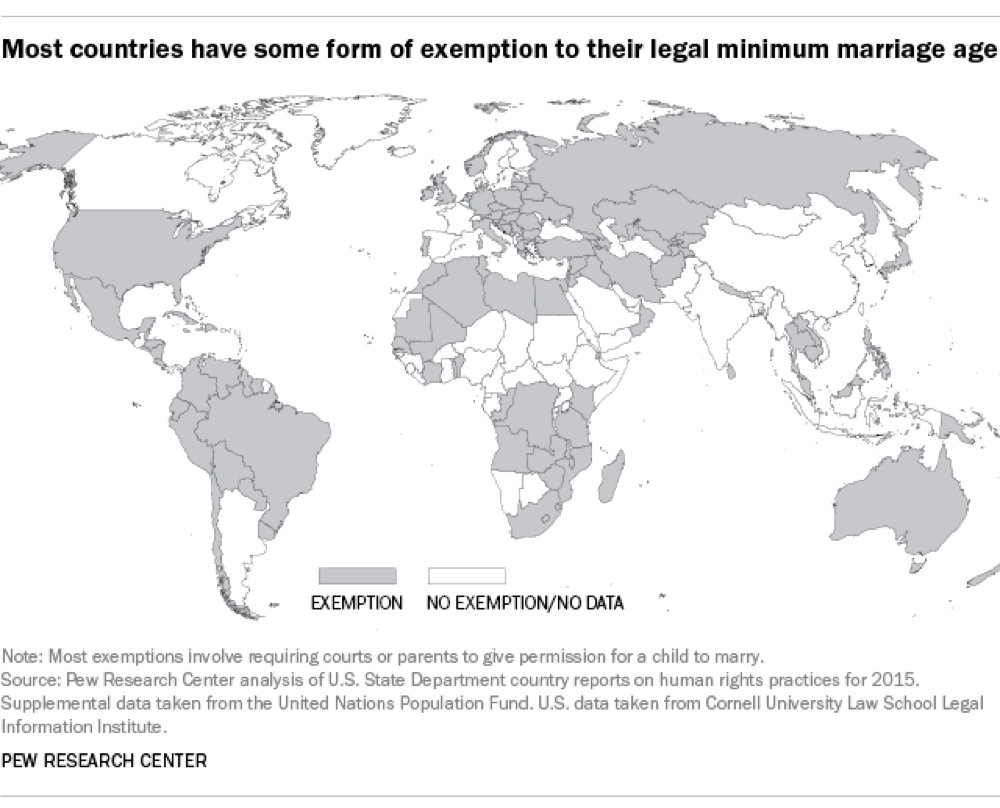“I raise up my voice—not so I can shout, but so that those without a voice can be heard.” – Malala Yousafzai
Gender Equality and women’s empowerment is still a significant challenge in many countries. Approximately 650 million women in the world today were married before they were 18 years of age according to the latest statistics from UNICEF.
1 in 3 girls in the developing world are married before 18; 1 in 9 are married before the age of 15. If present trends continue, more than 140 million girls will be married before the age of 18 in the next decade. These young voices are sending a plea for gender equality and the global empowerment of woman.
Child marriage is defined as the marriage of any child before the age of 18 years of age. In some countries, children are forced into marriages as soon as they reach puberty which in some cases can be as young as 10 or 11 years of age. Child marriage is more prevalent amongst girls and has far more severe health consequences than for boys. The United Nations has declared child marriage as a violation of human rights.
Listen to the voice of Memory Banda from Malawi and acknowledge her plea for change.
What are some of the reasons behind child marriage:
The reasons for child marriage differ between countries and cultures. However, there seems to be a common thread linked to lower socioeconomic circumstances. In many cultures, particularly in sub-Saharan Africa, men are required to pay for their brides which means that for families struggling to put food on the table, child marriage particularly for girls, will not only mean one less mouth to feed but could very well mean more money for the family. Child marriages can also sometimes be used to settle conflicts or offset debt in certain communities.
Child marriages are often deeply ingrained in the culture as ancient traditions and customs are passed down from generation to generation. In many cultures, the norms are that when a girl reaches puberty the natural next step is motherhood. Preserving family honour is also considered extremely important and therefore as soon as a girl reaches puberty it is safer to get her married as soon as possible so that the family does not face the risk of early pregnancy before matrimony or loss of virginity. It is in these communities that there is a desperate need for active promotion of gender equality and where woman’s empowerment needs to be nurtured and often facilitated.
Political alliance and unions to strengthen or forge relationships between tribes and communities is also a common motivation for strategically arranged marriages which often result in child marriages.
Consequences of Child Marriage:
Educational and economic consequences:
Child marriage will end childhood for both genders, however, for girls, in particular, this will often mark the end of a young girl’s education, which will minimize her economic opportunities, often perpetuating this cycle of poverty and result in an imbalance between the genders. Gender equality is essential for economies today, it is detrimental to brush aside half the population. What skills, talent and abilities are being concealed and how much are countries and economies losing out on by curbing their workforce.
Globally, there are 22 women in ministerial and parliamentary roles for every 100 men. Even in developed economies — and democracies — such as the United Kingdom and the United States, there are only 24 and 34 women to every 100 men, respectively, in these top government roles.
The economic and social benefits of narrowing the gender gaps are clear. If women were to participate in the world of work identically to men, an additional $28 trillion, or 26 percent of incremental global GDP, could be achieved in 2025. That’s roughly the combined size of the economies of the United States and China today.
For more on this topic read the full article here:
Health and wellbeing:
Often due to the vulnerability of young girls and their lack of maturity and experience a significant increase in the risk of domestic violence is common in cases of child marriage. There is also a very high risk of early pregnancy which could result in a number of health issues including:
- High blood pressure often referred to as pregnancy-induced hypertension which could result in preeclampsia. Preeclampsia is a serious complication that can develop usually after the 20th week of pregnancy. The condition is diagnosed when a pregnant woman has both high blood pressure as well as a high level of protein in her urine, which is known as proteinuria. (Proteinuria is often a sign that the mother’s kidneys are not working properly.)
- Premature labour and pre-mature birth putting newborn babies at risk and significantly reducing survival rates. Premature birth can lead to these health problems:
- Intestinal problems, sometimes caused by a disease that affects premature babies called necrotizing enterocolitis (also called NEC). …
- Infections.
- Vision problems, like retinopathy of prematurity (ROP). …
- Hearing loss, a common birth defect in premature babies.
- Low birth weight– possible complications of low birth weight include
- Low oxygen levels at birth.
- Trouble staying warm.
- Trouble feeding and gaining weight.
- Infection
- Breathing problems and immature lungs (infant respiratory distress syndrome)
- Nervous system problems, such as bleeding inside the brain (intraventricular haemorrhage)
- Higher risk of sexually transmitted disease and HIV
- Higher risk of postpartum depression
Child brides are often unable to negotiate safer sexual practices and are therefore at a higher risk of HIV and other sexually transmitted infections
The negative consequences of child marriage reach beyond the girls themselves: children of child brides are 60 percent more likely to die in the first year of life than those born to mothers older than 19, and families of child brides are more likely to be poor and unhealthy.

The top 10 countries for child marriages according to a 2017 report from UNICEF include:
- Niger 78% married by 18 years of age
- Central African Republic 68% married by 18 years of age
- Chad 67% married by 18 years of age
- Bangladesh 59% married by 18 years of age
- Burkina Faso 52% married by 18 years of age
- Mali 52% married by 18 years of age
- South Sudan 52% married by 18 years of age
- Guinea 51% married by 18 years of age
- Mozambique 48% married by 18 years of age
- Somalia 45% married by 18 years of age
Percentage of girls aged 15 – 19 years who are currently married or in a union by region:

For information on these staggering statistics please see this data source
UNICEF categorically states that child marriage is a violation of human rights and although there have been efforts to accelerate the elimination of child marriage particularly in Africa it is still all too common.
We need to listen to the voices of the warriors who are demanding to marry when they want!
Get involved and join a social sciences internship or gender equality and woman empowerment program that focusses on promoting education and leadership for the woman in Africa:


